Red Bank Psychological Services Blog
Our thoughts on mental health therapy, neuropsychology, and more.
 When you think about hypnosis, maybe you recall the film, Good Will Hunting (1997), where the main character, Will Hunting (played by Matt Damon), undergoes attempted hypnotherapy, poking fun at the process by producing ridiculous answers to the therapist's (Robin Williams) questions. Or maybe you think of the more recent movie, Get Out (2017), where the Armitages transplant brains; hypnosis is used to transport the conscious mind of the host into "the sunken place" where they are conscious but powerless. Most tv shows, stage shows, and movies exaggerate or twist the idea of hypnosis, but in reality, hypnosis is a well-researched and effective form of supplemental treatment for a range of issues including fatigue, chronic pain, anxiety, and distress. Let's clear things up about hypnosis: What is hypnosis? Hypnosis is an agreement between the client and therapist to provide suggestions for how to use your mind to control any emotional distress or fatigue you might experience. Hypnosis is like focused attention or concentration. Most people describe it as a pleasant, relaxing experience, sort of like being so lost in a book, music, or movie that you lose track of what's going on around you. Hypnosis involves learning how to use your mind to help you feel better. There is no one right way to experience hypnosis; the client simply needs to be open and listen to the sound of the therapist's voice. Hypnosis is NOT a magic spell. Does hypnosis work? Yes, research as shown that up to 89% of clients who try hypnosis benefit from it. And, even those who don't respond immediately to it can become more responsive to hypnosis with practice. It's a non-invasive, brief (15 minutes a session) technique that is worth a try. Eventually, you can do it to yourself at home, saving you both time and money. Health care providers have been using hypnosis to benefit patients for over 200 years.
Am I the type of person who can be "hypnotized"? Hypnosis is not a yes or no, all or nothing kind of thing. Instead, hypnosis works at different levels for different people. Most of us are in the middle, but some of us will be lower or very high, in terms of its effect. And, with practice, you can become more hypnotizable over time. Do I have to give up control for hypnosis to work? No! Stage shows, tv, and books typically present inaccurate, frightening, and misleading depictions of hypnosis. You will not be under the therapist's control. You will not be asked to do anything embarrassing. You do not have to do anything that you don't feel comfortable doing. You will neither be asked anything about past-lives nor traumatic memories. The focus is only on reducing emotional distress and fatigue. I'm pretty strong-willed and skeptical, so do I have a chance at this working? Yes! Some people mistakenly believe that only gullible, weak, or "new-agey" people are hypnotizable, but that is a myth. Hypnotic suggestibility is actually not associated with any personality trait in particular. You can be strong-minded and still benefit from hypnosis. Benefitting from hypnosis has more to do with how open you are to trying it, how well you expect it to work, and how willing you are to let yourself become absorbed in the experience. In fact, a strong mind and mental control can actually be very helpful in focusing and concentrating on hypnotic suggestions. What if I become "out of it" and get in a trance? Hypnosis is nothing like the feeling of taking a powerful tranquilizing drug. There is no spell, no sleep, no trance, and you are not under anyone else's control. You would be no more "out of it" than you would be during yoga, imagery, or other mind-body therapy. What if I attempted hypnosis before somewhere else for a different problem and it didn't work? The effectiveness of hypnosis depends on the problem you are trying to minimize, the setting, your mindset, and the training of the therapist. The past is not a good predictor of the future in this case. Trying it again would not be a bad idea. I'm not good at relaxing or meditation so will hypnosis work? Hypnosis does NOT require deep relaxation. It's more like drifting or daydreaming. In fact, research has shown that people can be hypnotized even when they are actively riding an exercise bike. Hypnosis and relaxation are not the same phenomena. Being anxious or hyper could mean that you are actually really motivated to benefit from hypnosis and have the most room to grow. Hypnosis is just one tool within comprehensive mental health therapy. The choice is yours, both in the decision to try hypnosis, and then what actually happens during hypnosis. Dayna Stein, MST, MSW, LCSW is a licensed clinical social worker and certified in Cognitive Behavioral Therapy and Hypnosis for Fatigue (CBTH). CBTH is an evidence based behavioral health intervention developed by the Icahn School of Medicine at Mount Sinai, Integrative Behavioral Medicine Program. Dayna earned degrees from Boston University, New School University, and Monmouth University, and prior to private practice in Red Bank, NJ, she specialized in trauma therapy at Catholic Charities and New Hope Integrated Behavioral Health Care, both in Monmouth County.
6 Comments
If you are human, then you sometimes feel anxious. It's not a great feeling, but it's perfectly normal. If your anxiety is getting in the way of your daily functioning, then you should consider seeing a mental health care provider who can help you gain control over your anxious thoughts. But, if you are simply feeling a little nervous or worried, these tips from the pros may help you relax.  Anxiety happens most often to me in the middle of the night, if I awake from sleep. My thoughts can start to ricochet from minor blips to serious issues and back. The best way that I find to manage ruminations is with the app, Calm, especially its "Sleep Stories." These soothing tales and non-fiction pieces delivered by talented voice-over professionals help distract my brain from any worries and lull me right back into a deep sleep in about 20 minutes or less. For more information, and a free trial, click here. You can connect with Dayna Stein, MST, MSW, LCSW. (She has no affiliation with the creators or publishers of the app.)Stories are soothing tales read by well-known voices to help people unwind and fall into a deep sleep each evening.  As a Mom and Psychologist, managing stress and anxiety are critical in order to take care of my family and patients. My main strategy for managing anxiety is to exercise. The combination of weight training and running, works best for me. When my schedule is particularly chaotic, I slow things down by practicing brief mindfulness exercises. For example, when I am spending time with my daughter, I smell her hair, rub her arms and engage my senses while being present with her. If I am alone, I will close my eyes, take several deep breaths, and listen for the most distant sound I can hear. You can connect with Nicole Amoyal Pensak, PhD.. 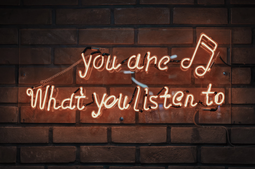 When I get anxious, I go right to my radio dial or my guitar. Music shifts my focus away from what's causing me to stress out. It soothes me, even if the style of the music itself isn't that soothing. Music doesn't just distract me; it also can lower heart rate and hormone levels. It triggers the brain to release endorphins, increase dopamine levels, and block pain, all which boost mood. When you are worried, turn on some tunes you love. You can connect with Lawrence Stein, PhD. 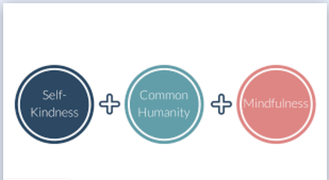 I spend a lot of time in my car, running here and there and am usually anxious about running late. Too often I am running on “auto-pilot” and arrive to where I am going with little recollection of the actual journey. Over the past few years, I have made a conscious decision to pay more attention and have more compassion for myself and others. Self-compassion has been associated with less symptoms of anxiety and with positive psychological functioning. By applying the three elements of self-compassion (Self-kindness, Common humanity, and Mindfulness), I have experienced a change in my own relationship with anxiety. Rather than struggling against the anxiety, I learned to work on reducing self-judgments, I learned that it is important to remind myself that anxiety is a part of being human, and I began to notice my thoughts and feelings more regularly - allowing them to move on without becoming attached. You can connect with Maria Nakhleh, LCSW. When I am feeling anxious, I like to use mindfulness to help me ground myself and become more attuned to my inner chatter. Mindfulness is a lot of things to different people - for me it’s having awareness of the inner chambers of my heart, body, and spirit without any judgment. On most days and especially when I have added feeling s of anxiety, I use a technique that brings consciousness to my inner-workings, reduces stress, and creates acceptance of MY present moment. It’s really simple, for just 5 minutes a day (or longer if time allows) I try to find a safe, quite place to check in with myself. Meaning - what is happening with Anna today? What is her mind telling her? What is her heart searching for? What are the bodily sensations that accompany all of this? This simple daily check-in allows me to notice and acknowledge my inner presence. If I want to cry - I cry, if I feel like giving myself a good pep talk - I do. Even if my anxiety doesn’t fully subside – checking in with myself helps me acknowledge my thoughts and emotions in the present moment and allows me to give myself more self-acceptance and love. Try this simple mindfulness practice each day and start developing a better relationship with yourself! You can connect with Anna Zonen, LCSW. While it has not been an easy Spring for riding bicycles or walking the boardwalk, there have been many good days to curl up with a good book. My colleagues and I are here to help you hold out until Summer with some titles we recommend. Some are heavier than others, but they are all intriguing... 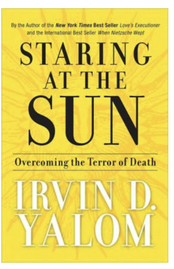 Staring at the Sun: Overcoming the Terror of Death is written by a therapist, Irvin D. Yalom, who treats therapists. Yalom, in his 80’s, deals with his own mortality, his clients’, and his clients’ issues with their own mortality. Very clear, kind, and insightful guidance are rendered in Yalom’s sensitive and intelligent words. You can connect with Tom Magnus, LPC. 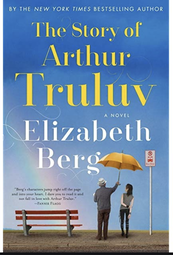 The Story of Arthur Truluv by Elizabeth Berg is worth reading. Although I can’t take credit for the impetus to read the book (I credit my local book club), Berg is one of my favorite writers. She often writes about the families we build in non traditional ways. This book is no exception. It’s short, lovely, and reminds you what you love about people. You can connect with Liz Walter, LCSW.
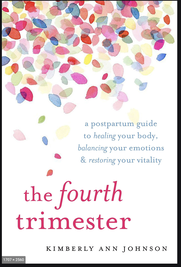 The Fourth Trimester by Kimberly Ann Johnson is an excellent guide for women postpartum, including those with Perinatal Mood Disorders and birth trauma. It examines postpartum healing on physical, emotional, relational, and spiritual levels. As a social worker, I am always looking at the "person in environment" and providing treatment that is holistic. This book fits the bill. You can connect with Geraldine "Gerry" Viggiani, LCSW, LCADC, PMH-C. 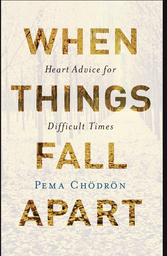 A favorite book is "When things Fall Apart: Heart Advice for Difficult Times" by Pema Chodron. It is about facing difficulties in life, regardless of what those difficulties are. It is written from a Buddhist point of view. I actually prefer the audio book version which is read by Pema Chodron herself. You can connect with Marcella DiFedele, MS, LCSW. 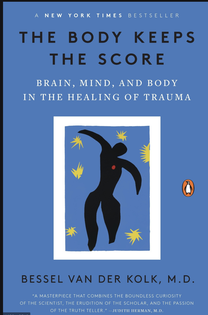 The Body Keeps the Score by Bessel Van der Kolk, MD, a renowned trauma expert, talks about how trauma reshapes both the brain and the body. Trauma gets trapped in our memories and our bodies, and manifests in a physical way. Van der Kolk explains how body-brain therapies such as EMDR and yoga can activate the body's ability to heal trauma. The body is everything in healing! Some clients with eating disorders struggle with a history of trauma and use their symptoms to cope with unwanted thoughts, feelings, or body sensations. By becoming attuned to how the body manifests trauma, we can better heal the way the brain regulates the body. You can connect with Kimberly Kahn, LCSW. Several of my clients right now are grasping with the same issue. Their romantic relationships seem to have more struggles and fewer cuddles than they did when they first began. My clients are trying to figure out if these conflicts are simply growing pains, and a normal part of a long-term relationship, or if they are deal breakers, and should pave the way to an exit. What one should do, of course, is not a question that any therapist can answer for you. However, therapists can help you gain clarity, support, and confidence when making a decision.
So what are some of the serious signs of a romance going South? I agree with the author in this Time magazine article, How to Know When it's Time to Let Go of Someone You Love who points to these signs that it may be a no-go:
One of the most common reasons my clients give for staying in a relationship that is not working well is because they are afraid to be alone. Most of the time, this fear is unfounded. Why? Because after a grieving period after a break-up, there is typically a feeling a relief and renewal when one regains freedom and "gets back out there". Dayna Stein, MST, MSW, LCSW is a licensed clinical social worker in a Red Bank, NJ private practice and part-owner of Red Bank Psychological Services. She works with clients who are feeling stuck and has current openings in her schedule. |
Details
AuthorsDayna Stein, MST, MSW, LCSW: Therapist, Educator, Parent, Movie Buff, & Travel Enthusiast. Archives
March 2022
Categories |
|
732-747-8818
|
316 Broad Street - Suite 1, Red Bank, NJ 07701
|